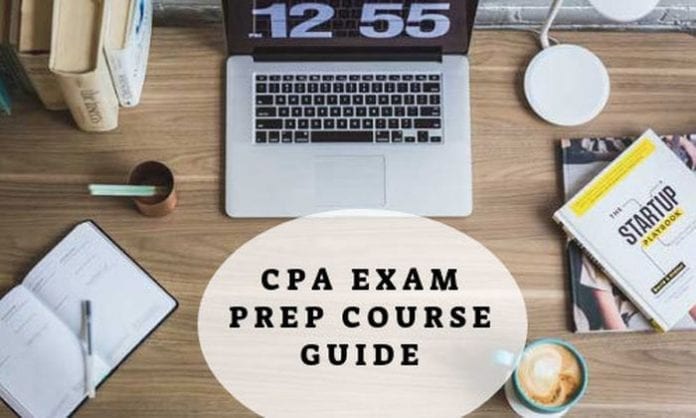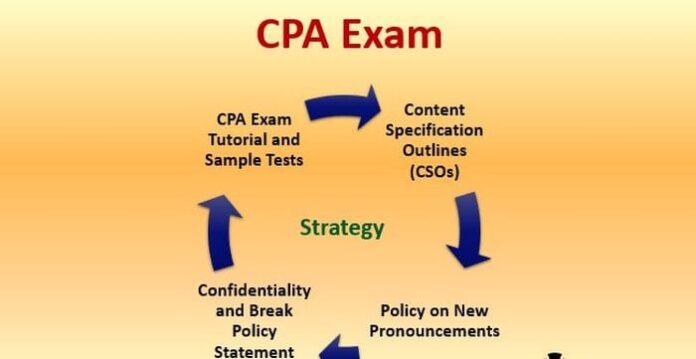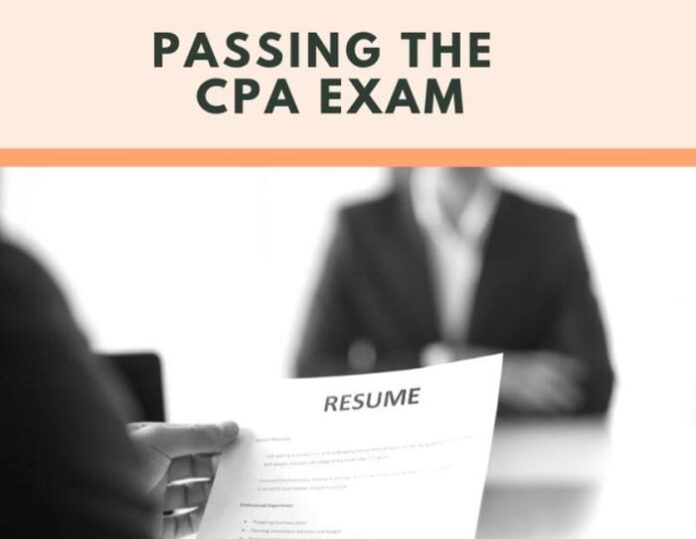Everyone hopes to pass each section of the CPA exam on the first try. For some people, that’s exactly what happens. However, a large portion of people need to retake at least one section. Some people need to retake multiple sections, while others need to retake specific sections multiple times.
The bottom line is that the CPA exam is hard. Statistics show that slightly more than half of the test-takers pass on the first try. Although it’s not an easy test to pass right out the gate, it’s not impossible. The fact that at least half of test-takers do pass on the first try is a promising statistic. However, they don’t pass the exam by accident and it’s not simply ‘in their genes.’

How people pass the CPA exam on the first try
There’s no big secret to how people pass the CPA exam on the first try. Like any exam, people who pass on the first try have a knack for studying and remembering what they read. That’s a simplistic explanation, but it’s true.
If you want to pass the CPA exam the first time you sit for the test, you need to hone your studying skills. Specifically, you need to strengthen your ability to remember what you read and grasp the context of the information so you can apply that information to theoretical situations presented as test questions.
You also need to practice applying your knowledge before taking the test.
1. Take a CPA exam prep course

Let’s say you’ve mastered the art of memorizing information. That’s great for multiple choice questions, but won’t help you apply what you know to real-world scenarios. If you can’t grasp the context of the knowledge you study, you can’t apply it outside of a yes/no quiz. To get your CPA license, you must be able to apply what you learn in a variety of circumstances.
Taking a CPA exam prep course is the best way to prepare for applying knowledge in different contexts. Visit EfficientLearning.com to find CPA prep courses that are up to date and current with the material you’ll see on exam day. These prep courses come packed with questions similar to what you’ll find on the real CPA exam.

By taking a prep course, you’ll get an accurate taste for what you’ll be up against when you sit for the exam.
2. Practice memory techniques
Before you can work on strengthening your ability to comprehend context, you need a strong memory. There are plenty of techniques that will help you memorize large amounts of information. For example, chunking is a common technique that works well.
Also, the Zeigarnik Effect is something to be aware of. The Zeigarnik Effect is what happens when your subconscious mind processes problems while you’re taking a break. You’ve probably experienced this many times without realizing what was happening. Those sudden epiphanies you have in the shower, while driving, or at 3am are all examples of the Zeigarnik Effect.

3. Consider all possible scenarios, outcomes, and problems
The best way to train yourself to apply knowledge in different contexts is to actively consider as many nuances as you possibly can.
For example, say you’re learning about the difference between W2 tax returns and 1099 tax returns. As you read your materials, you learn that W2 employees pay 50% of payroll taxes (Medicare and Social Security), while their employer pays the other half. These payroll taxes are automatically deducted from the employee’s paycheck. Reading further, you learn that a self-employed person pays 100% of all payroll taxes.
All of this information is easy to remember, but not so easy to apply in the context of a real-world scenario. For example, what happens when someone has a W2 and a 1099? They’ve paid payroll taxes through their W2 employment, but they still owe payroll taxes for all of their 1099 income. Even if their miscellaneous income is only $100 for a quick gig they did for a Craigslist client and they never received an actual 1099 form.
Every chance you get, create a scenario in your mind that allows you to explore how to apply what you know within the context of nuanced situations.

4. Take advice from others who have passed the exam
Your best source for advice will come from others who have passed the exam. While you might think it’s best to get advice from people who passed on the first try, you’ll actually get more useful advice from people who have failed portions of the test.
Certain sections of the exam are harder than others, and some people make the same mistakes. Common mistakes usually go unnoticed until the test is failed. Then, the mistake is highlighted. If you can connect with people who failed any portion of the test, find out what they learned from their mistakes. Where did they get tripped up? What misconceptions held them back?
If you don’t know anyone, just head over to YouTube and search for CPA exam tips. You’ll come across plenty of videos offering all kinds of tips from how to study, what to study, and how to hold down a job while you study. For example, this guy says he worked part-time for 20 hours per week while studying for the CPA exam and he was able to pass.
5. Keep studying and take the test when you’re ready
The best advice you can listen to is not to rush your test. That doesn’t mean postponing it for years until you feel ready. Chances are, you’ll never feel completely ready. You have to take the test at some point, but if you’re not truly ready, it’s better to keep studying and wait.
If you don’t pass the first time, try again
The prospect of failing the exam isn’t appealing, but it’s a possibility. However, if you do fail, don’t let it get you down. Study more and try again. Many people end up passing on the second try, and if you study harder, you could be one of those people.









